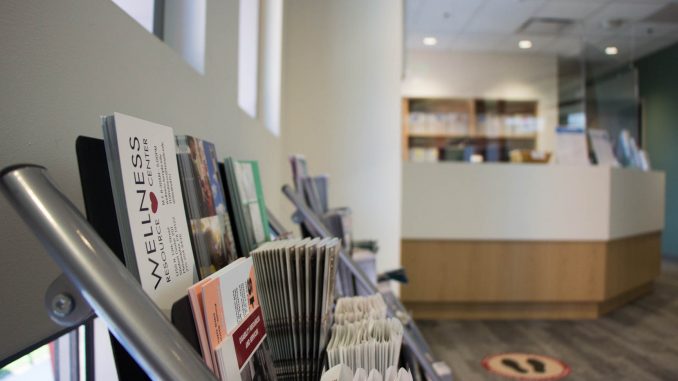
Blake Davis is concerned about the impact colder, shorter days could have on his mental health.
“It’s pretty ominous, like a looming threat,” said Davis, a sophomore sociology major.
Seasonal Affective Disorder, a form of clinical depression associated with fall and winter, affects approximately five percent of Americans, according to Mental Health America. People experiencing SAD feel fatigue, depression or hopelessness causing a tendency to withdraw socially during the winter months, said Steven Hulcher, senior psychologist at Tuttleman Counseling Center.
The COVID-19 pandemic may have a negative impact on student’s mental health because of limited opportunities for social interaction, he added.
“There’s a tendency of course to withdraw socially, that’s one of the most prominent factors of it,” Hulcher said. “It certainly ties in now with COVID that certainly everyone’s being more socially isolated, which in and of itself I think could certainly lead to some depression.”
Emelia Luker, a sophomore psychology major struggled with feelings of isolation and taking online classes when the pandemic began in March, she said.
“I was having a hard time not getting to have that experience of college in the spring with my friends and I had to go home,” Luker said. “Because of my ADHD, I find it really hard to focus in environments that aren’t school-based.”
The Wellness Resource Center created additional programs and provided mental health resources for students with topics like improving mental health, self care and connecting while feeling lonely, said Janie Egan, a mental well-being program coordinator at the Wellness Resource Center.
“Winter is already hard on a lot of people as far as mental well-being,” she added. “This winter might present new challenges for many of us.”
The winter months do not normally affect Greyson Russell’s mental health, but this year may be difficult for her, she said.
“At least like other times, you can like socialize a bit and like, have your friends, even when it’s, you know, crap, and you can kind of have that to like boost your energy,” said Russell, a junior biology major. “This year it’s like, it’s going to be empty.”
For Gabrielle Dando, a senior adult and organizational development major, the winter holidays and social connections with friends and family help reduce loneliness.
The City of Philadelphia still recommends residents think before adding people to their social bubble, limit indoor gatherings to 25 people and limit how many people someone connects with in person, according to a city release.
Dando already feels isolated because she is immunocompromised and needs to be careful who she comes in contact with, she said.
“I felt distant from all my loved ones and everything and it’s kind of been depressing,” Dando said. “Like I feel a lot of loneliness, but it’s like also anxiety of the uncertainty, like, what’s gonna happen? And this is going to go on for years to come?”
While he is concerned, Davis believes he has developed coping mechanisms that will help him get through the season, like eating and exercising regularly, and attending recovery Zoom meetings.
“I think that I’ll be okay,” Davis said. “But it’s not going to be easy for sure.”
Remembering to take time for personal care is important, even if it is through virtual workouts or social events, Egan said.
“The everyday, even simple ways that we can take care of ourselves that have a big impact like resting, sleeping, nourishing our bodies, connecting with others,” Egan said. “Even if it is virtually and not in person, moving our bodies in ways that feel good, things like that.”



Be the first to comment